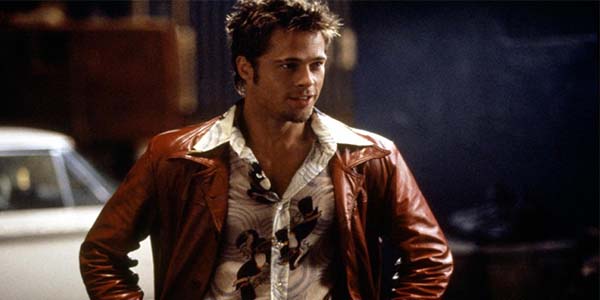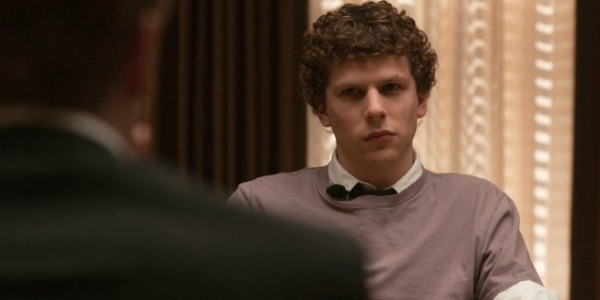The Beginner’s Guide: David Fincher, Director

Freelance writer. Aspiring novelist. Successful procrastinator.
You may be surprised to learn that David Fincher‘s career almost never got off the starting grid. 1992’s Alien 3, a poisoned chalice if ever there was one, turned out to be a torrid experience for the former music video director (he had helmed videos for luminaries such as Jermaine Stewart & Madonna, most famously ‘Vogue’), to the point he genuinely considered giving up filmmaking.
What a loss to cinema that would have been. Fincher has, in the last quarter century, cemented his position as one of Hollywood’s most striking, brave, vivid and defiantly hard to predict auteurs, with cinematic choices ranging from the horrific to the mournfully romantic.
A certain nihilism punctuates his filmmaking however, that’s the first point to remember about Fincher. He’s not a director who necessarily believes in a happy ending, or a just ending. He believes in the cold hard reality of existence, the unending nature of circumstances, and such a world view is often reflected in more of his stark pictures.
Was it formed during a childhood where his mother worked as a mental health nurse helping those with drug addiction problems, and where his father was a Life reporter? All we know is that Fincher felt the creative calling from a very early age, directing school plays in Ashland, Oregon, where he grew up as a teenager, working as a projectionist and later a television news station production assistant. Media and film, it seemed, was in his blood.
Following his days working as a visual effects producer, including for Industrial Light & Magic where he contributed to Return of the Jedi and Indiana Jones & the Temple of Doom no less in the early 1980’s, Fincher not only contributed to music videos and commercials for companies as major as Nike, Pepsi & Sony, his success in directing the Rick Springfield documentary The Beat of the Live Drum in 1985 led in part to Fincher co-founding Propaganda Films, a video-production company where he began to hone his craft, determined to become a director of the moving image.
Alien 3 (1992)

The aforementioned Alien 3 was, by all accounts, a baptism of fire Fincher almost didn’t survive. Ever since the rampant success of 1986’s Aliens, it had languished in Development Hell, passing through a complex range of creatives via 20th Century Fox before Fincher was hired to replace Vincent Ward. He was presumably giddy at being gifted the opportunity to continue one of Hollywood’s most beloved franchises as his first feature.
In retrospect, it’s the 1990’s equivalent of the Josh Trank phenomenon today; throwing a talented but largely untested newcomer in at the deep end and hoping he can swim. Fincher attempted to put his mark on a screenplay already written a myriad amount of times, but it was largely hopeless. He started $7 million in the red and without a finished script.
To this day, Fincher hates the third outing for Ellen Ripley and has stated “no one hated it more than me; to this day, no one hates it more than me” and he has previously declined to take part in re-release box-set Director’s Cuts. The experience sent him fleeing back to the world of music videos and commercials, until what many would argue his masterpiece pulled him back in.
Se7en (1995)

Famously, Fincher only became interested in Se7en after New Line Cinema sent him the wrong script! The infamous ‘head in a box’ climax came from an earlier draft by writer Andrew Kevin Walker than they intended to send the director, having encouraged changes to turn the detective thriller into more of an action piece.
However, it was the earlier, more daring script that tempted Fincher back from the brink of cinematic self-exile. Still shaken by the traumatic experience making Alien 3, vowing at the time never to direct a movie again, Fincher was hooked by larger themes of good and evil in the screenplay.
Once he’d bargained with New Line head honcho Michael de Luca to keep the harrowing original ending (with the backing of star Brad Pitt) he was on board and on track to create one of the finest detective thrillers of, possibly, the first century of cinema.
Se7en is by turns deeply distressing, somber, violent, psychologically harrowing, nihilistic and yet noble, strangely hopeful and brave. Fincher utilises Pitt and co-stars Morgan Freeman, Gwyneth Paltrow and especially Kevin Spacey magnificently, managing to craft a thrilling and by degrees haunting examination of man’s own inhumanity.
Fight Club (1999)

While many people do forget the Michael Douglas-starring The Game in 1997, a rather trippy and clever Hitchc*ckian plunge into the rabbit hole, arguably it was Fincher’s adaptation of Chuck Palahniuk’s seminal novel Fight Club that he achieved his first true success that resonated in pop culture. However, financially it wasn’t a titanic success.
With its unreliable narrator in Tyler Durden’s story, and that same strong nihilistic vein which inverted plenty of ‘coming of age’ pictures (as Fincher described the film), Fight Club captures that cold, stylish power the director has.
Fincher was reticent once again at taking the helm, given 20th Century Fox — with whom he’d had such a torrid time over Alien 3 — were releasing the project. In the end, studio executive Laura Ziskin convinced him it was worth repairing those relationships for.
Inevitably, the studio found Fincher’s cut not to their taste, and had a terrible time marketing a movie which couldn’t be placed in a neat cinematic box. Much like plenty of Fincher’s output, Fight Club continues to resonate as a violent, defiant piece of cinema.
Either adored or indeed hard to love, it’s cruel and powerful to watch on every subsequent viewing, and would arguably be high on the list of many Fincher cineasts. Just not this one.
Zodiac (2007)

Though underrated, Fincher followed up with his most forgotten picture, the Jodie Foster-starring Panic Room in 2002. However, it was with Zodiac he truly cemented himself once again in the eyes of many as one of Hollywood’s finest auteurs.
A forensically detailed examination of the real life Zodiac Killer investigation in the 1960’s and 1970’s, a spree of horrific murders around the San Francisco area to this day never solved, it’s an epic crime drama which I consider to be Fincher at his absolute best. Intense, detailed, sprawling and able to tease some career best performances out of actors such as Jake Gyllenhaal and Mark Ruffalo.
He and screenwriter James Vanderbilt take great care in separating fact from fiction, or even speculation, ensuring their combined screenplay and subsequent picture was as close to the truth as they could possibly get, in a case where the truth remains elusive.
Beyond the film itself, the story of Zodiac and the sheer amount of research that went into making the picture is fascinating to explore. It seemed to awaken in Fincher a move closer to the journalistic, the documentarian, not in the literal sense but perhaps of people’s lives.
Maybe he is growing closer to his father’s profession with age through his films, as in recent years they have almost all featured the same sense of stark, socio-political fiction.
The Social Network (2010)

Before his remake of Steig Larsson’s novel The Girl With the Dragon Tattoo in 2011, and after his attempt at a romantic epic in 2008 with The Curious Case of Benjamin Button, both hugely underrated and misunderstood films, Fincher turned his attention to a real life figure, and what he created that has changed the world forever: Mark Zuckerberg and Facebook.
The Social Network saw Fincher team up with legendary screenwriter Aaron Sorkin for a picture which examined not just the phenomenon of Facebook and how it came to be, but just what it created in Zuckerberg. It’s all capped off with a stylish, often sleek and sexy verve which made it a pulse pounding ride into the American, neo-hipster elite.
Despite being a huge success, both critically and financially, it drew criticism for factual veracity, but unlike Zodiac where Fincher wanted to capture the absolute facts as they existed, the story of Facebook was always going to be one of smoke and mirrors.
Therein lies one of the fascinating contradictions in Fincher, and why he’s an eternally interesting director. He seeks answers while also in his storytelling appreciates the idea of a romanticism of the truth, and he’s eternally fascinated by what makes us who we are, what makes us human, and what often can turn us into monsters.
Fincher has approached these themes, and these contradictions, in some many varied and vivid ways across his fairly select amount of directorial projects.
The Future…
We haven’t seen anything of Fincher since his adaptation of Gillian Flynn’s icy, satirical thriller on marriage, Gone Girl, except surprisingly on the small screen.
He has remained a producer on Netflix trendsetter series House of Cards (two early episodes of which he also directed), and is now heavily involved with crime author James Ellroy (a kindred spirit of brutal, nihilistic sensibility) on Shakedown, a 1950’s LA set crime drama following a PI.
He’s also involved in Living on Video, an 80’s set comedy about a young music video director which surely will be quite autobiographical. Plus, he’s slated to direct Mindhunter, a new Netflix series based on an FBI crime unit.
But what about his next movie? As it stands, nothing is on the slate. Many have hoped to see him adapt Larsson’s sequel The Girl Who Played With Fire, but fear that ship may have sailed by now. Moreover, he’s long been attached to a modern day version of Jules Verne’s classic 20,000 Leagues Under the Sea, which would be an incredible departure for Fincher in terms of almost anything he’s done before.
We can be sure that one day, David Fincher will direct another movie again. We can only hope it’ll match his already diverse and divisive, but never less than enticing, body of work.
What is your favourite David Fincher film and why?
Does content like this matter to you?
Become a Member and support film journalism. Unlock access to all of Film Inquiry`s great articles. Join a community of like-minded readers who are passionate about cinema - get access to our private members Network, give back to independent filmmakers, and more.













